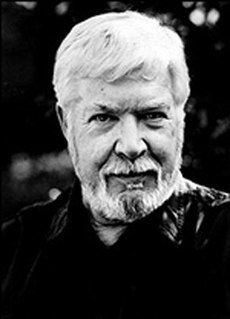A Quote by L. Ron Hubbard
I loved the sea. I loved steamers and sailboats and surf and sailors. And I yearned and strained to the sea, always the sea, for it is a lovely, vicious lonely thing. In its limitless variety I had a sort of HOME.
Related Quotes
I've always loved the songs of the sea. I was first introduced to them back in 1957, at the Old Town School of Folk Music. I used to go to Pete Seeger concerts, and he would do songs like 'Ruben Ranzo' and talk about how the sailors sang songs to do their work - to raise the anchors, pull up the sails and that sort of thing.
I stare at her chest. As she breathes, the rounded peaks move up and down like the swell of waves, somehow reminding me of rain falling softly on a broad stretch of sea. I'm the lonely voyager standing on deck, and she's the sea. The sky is a blanket of gray, merging with the gray sea off on the horizon. It's hard to tell the difference between sea and sky. Between voyager and sea. Between reality and the workings of the heart.
It is a curious fact, but nobody ever is sea-sick - on land. At sea, you come across plenty of people very bad indeed, whole boat-loads of them; but I never met a man yet, on land, who had ever known at all what it was to be sea-sick. Where the thousands upon thousands of bad sailors that swarm in every ship hide themselves when they are on land is a mystery.
Every time I look at it, It looks back at me I love the sea, its waters are blue And the sky is too And the sea is very dear to me If when I grow up and the sea is still there Then I’ll open my eyes and smell the fresh air Because the sea is very dear to me The sea is very calm and that’s why I like it there The sand is brand new and the wind blows in my hair And the sea is very dear to me.
The Sea of Galilee and the Dead Sea are made of the same water. It flows down, clean and cool, from the heights of Herman and the roots of the cedars of Lebanon. the Sea of Galilee makes beauty of it, the Sea of Galilee has an outlet. It gets to give. It gathers in its riches that it may pour them out again to fertilize the Jordan plain. But the Dead Sea with the same water makes horror. For the Dead Sea has no outlet. It gets to keep.
Say the sea. Say the sea. Say the sea. So that perhaps a drop of that magic may wander through time, and something might find it, and save it before it disappears forever. Say the sea. Because it's what we have left. Because faced by the sea, we without crosses, without magic, we must still have a weapon, something, so as not to die in silence, that's all.
Nobody could catch cold by the sea; nobody wanted appetite by the sea; nobody wanted spirits; nobody wanted strength. Sea air was healing, softening, relaxing - fortifying and bracing - seemingly just as was wanted - sometimes one, sometimes the other. If the sea breeze failed, the seabath was the certain corrective; and where bathing disagreed, the sea air alone was evidently designed by nature for the cure.



































